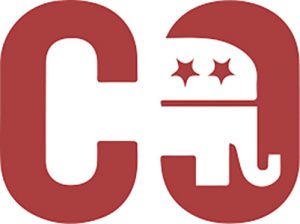by JF Mercury
HUERFANO- If you′re like most people, you′re fed up with the one-sided coverage of this year′s presidential campaign, snubbing the obvious choice while fawning over a completely inappropriate alternative. Funny thing is that, if you′re like most people, you′re wrong.
You see, there′s something known as the "Hostile Media Phenomenon", and it′s pretty well documented. It′s what happens when someone with a partisan viewpoint on some issue – pretty much any partisan viewpoint – is exposed to news coverage on that issue. It turns out that partisans on each side of a conflict perceive media coverage as being excessively critical of their side while giving a free pass to the other.
The remarkable thing is that it doesn′t much matter what the actual coverage is: take a liberal and a conservative and give them the same report; statistics say that the conservative will complain of its left-leaning slant, while the liberal will point out its right-wing agenda. Doesn′t matter how young or old we are, how well-educated or homespun – if we have a pre-existing bias on some issue, we′ll see pretty much any media coverage as more "against" us than others would.
The definitive study that everyone cites [1] was spurred by an analysis of letters to the editor of Time Magazine during the 1980 Carter-Reagan election. The researchers noticed that partisans on both sides felt strongly that the magazine was unfairly biased against them:
From a conservative: "Barrett′s pre-election piece on Candidate Ronald Reagan was a slick hatchet job, and you know it. You ought to be ashamed of yourselves for printing it disguised as an objective look at the man." From a liberal: "Your story on ′The real Ronald Reagan′ did it. Why didn′t you just editorially endorse him? Barrett glosses over Reagan′s fatal flaws so handily that the ′real′ Ronald Reagan came across as the answer to all our problems."
But the researchers discovered that poor Barrett wasn′t the only one getting bashed from both sides. They recruited students from pro-Arab and pro-Israeli student organizations at Stanford and showed them news coverage of the 1982 Beirut massacre. As they suspected, the pro-Arab students felt that the news coverage was pro-Israel, while the pro-Israel students felt that the very same coverage was biased against Israel.
Digging deeper, the researchers found that there were perceptual differences: even though both sets of students were shown the same news, they "saw" different programs. When asked to count favorable and unfavorable references to Israel, the pro-Arab students came up with counts that were skewed opposite those of the pro-Israel students (42% vs 16% favorable, 26% vs 57% unfavorable). Each side was just much more attuned to noticing things that could be interpreted as hostile to their point of view.
If this surprises you, think about why the @#$! ref doesn′t throw a flag the next time Dallas "obviously" fouls Cutler in the backfield. The ref (like Time Magazine) is clearly against us, the partisan. And you can bet your Bronco seatwarmer the fans in Dallas are thinking the same thing.
So, what does this say for the journalists? Pretty much that they′re in the doghouse whenever they tackle a partisan issue – they′re doomed to get roasted by at least one side, and if they do anything that′s even vaguely objective, they′ll get it from both sides.
But given that the poor journalist is doomed, is there anything that we, the reader, can take from our knowledge of the hostile media phenomenon? While it′s diagnostic (it explains why we get so worked up), it doesn′t provide any prescription for defusing the problem.
I′ll venture that even knowing the phenomenon exists can help return us to rational constructive dialogue. The next time you see the press leaping on an innocent turn of your candidate′s phrase while giving a free pass to the egregious "mis-statement of fact" by that other guy, take a deep breath. Your neighbor (who supports "that other guy") probably has his blood boiling over the same article, but for the exact opposite reasons.
We all care pretty deeply about this election because, face it, we all care pretty deeply about our country. I recognize that each candidate is supported by a lot of intelligent, well-educated constituents – folks who are a lot smarter and more devoted to understanding the issues than I am.
So here′s my recommendation: Take another deep breath. Re-read that article, and think about all the different ways it could be perceived. If it′s balanced, there′s something there to tick everybody off. The best way to find that something is to amble over to your neighbor′s house and ask him what he thought of the article.
Listen to him rant a bit about how one-sided the press is. Don′t argue, just listen. Then smile, and tell him how it′s funny – you felt the article was all biased the other way.
And – here′s the crucial part – before he can get started arguing with you about it, pull out that six-pack you brought over (you did bring a six-pack, didn′t you?). Offer him a beer, and say "But I′ll tell ya – did you see the game yesterday? They ought to get a seeing-eye dog for that ref – Allen could have used a two-by-four in the backfield and he wouldn′t have called it!"
[1] Vallone, Ross and Lepper (1985). The Hostile Media Phenomenon: Biased Perception and Perceptions of Media Bias in Coverage of the Beirut Massacre. Journal of Personality and Social Psychology, Vol 49(3):577-585. Available online at www.ssc.wisc.edu/~jpiliavi/965/hwang.pdf




